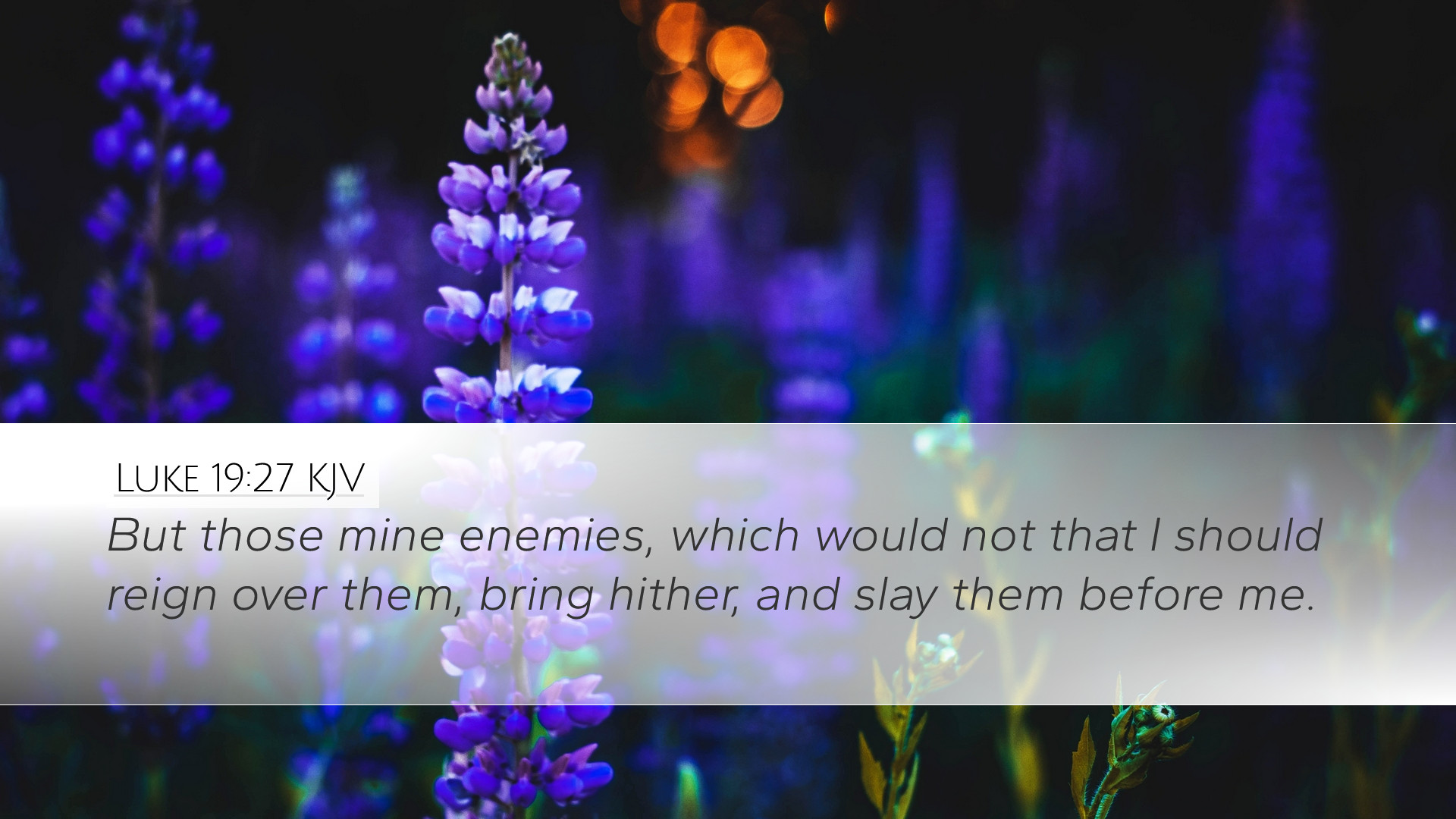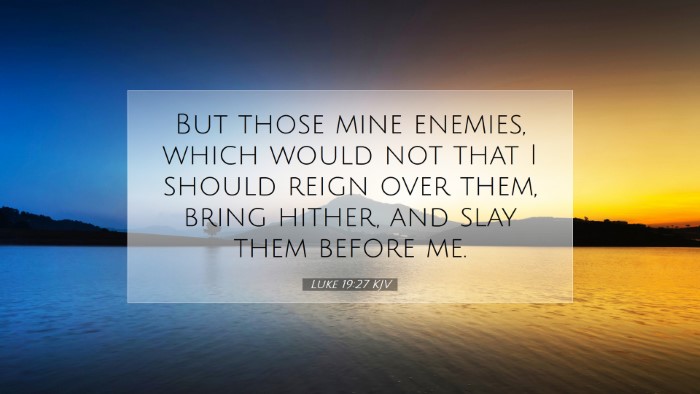Commentary on Luke 19:27
Luke 19:27 states: "But those mine enemies, which would not that I should reign over them, bring hither, and slay them before me." This verse, often regarded as a challenging
and complex passage, resonates deeply with themes of judgment, authority, and the nature of Christ’s kingdom.
Contextual Overview
This verse is situated within the Parable of the Ten Minas (Luke 19:11-27), a narrative that reveals
critical teachings on stewardship, rewards, and the eventual judgment of those who reject the authority
of Christ. The parabolic structure invites readers to unpack its moral and theological implications.
The Nature of Christ's Rule
In light of Christ’s authority as King, Matthew Henry emphasizes that true allegiance to Christ demands
acceptance of His rule in our lives. For Henry, this verse illustrates the consequences of rejecting
Christ’s authority:
- Rejection of Kingship: The enemies denote those who actively resist Christ’s reign, signifying a broader
rebellion against divine authority.
- Judgment: The command to bring these enemies before Him indicates a coming judgment that
emphasizes the seriousness of rejecting God’s sovereignty.
Theological Implications
Adam Clarke provides a perspective that this passage conveys a profound theological truth:
God's kingdom is one where acceptance leads to blessing, but rejection leads to judgment.
He remarks that the enemies signify not only those who defy Christ but also those within the community
who fail to acknowledge His authority as paramount. Clarke warns against a complacent attitude toward faith,
urging the necessity of an active and open acceptance of Christ as Lord.
Parabolic Lessons on Responsibility
Albert Barnes adds layers to this interpretation, relating the verse back to the need for responsible
stewardship. In the preceding verses, servants are entrusted with minas, representing resources and abilities
given by God:
- Responsibility of Believers: The servants’ obligation to invest and multiply what is given to them illustrates the
expectation God has for His followers.
- Consequences of Neglect: Those who squander their opportunities face dire repercussions, symbolized
by the fate of the enemies.
Church and Eschatology
This verse has eschatological significance as well. It serves as a foreshadowing of Christ’s second coming
and the final judgment. Believers are called to recognize the urgency of their mission in light of
Christ’s teachings, preparing for an inevitable accountability.
Matthew Henry articulates that this text reinforces the idea of Christ's reign not merely as
a future reality but as an ongoing dominion in the lives of believers. As such, those who wish to see Him
reign must actively participate in His mission and not ignore His commands.
Reflection on Personal Life
In applying Luke 19:27 to personal life, it challenges individuals and faith communities to consider:
- Personal Rebellion: Are there areas in life where we might be resisting the full reign of Christ?
- Community Engagement: How are we as a community addressing the call of stewardship in a world that often
rejects divine authority?
Conclusion
Luke 19:27 is a compelling reminder of the reality of divine judgment and the authority of Christ as King.
Combining insights from Matthew Henry, Adam Clarke, and Albert Barnes reveals the multidimensionality
of this passage, serving as a spiritual call to action for believers. It challenges us to embrace, rather
than reject, the transformative reign of Christ in our lives, with profound implications for stewardship,
community engagement, and eschatological readiness.


